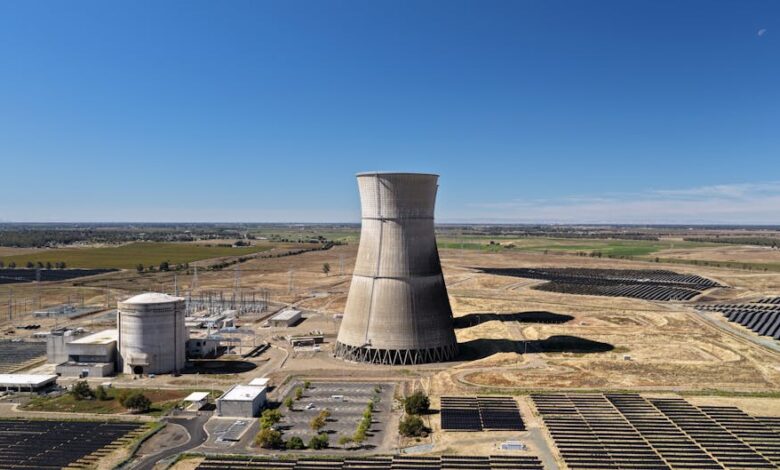The Shifting Sands of Global Economic Power

Imagine a global economic landscape radically reshaped, where the titans of today share the stage – or even cede it – to nations we currently classify as emerging markets. It’s a vision that might seem pulled from a futuristic novel, yet leading financial institutions like Goldman Sachs are painting just such a picture for the decades ahead. And right at the heart of this unfolding narrative? Egypt, a nation with ancient roots but a remarkably modern ambition, projected to emerge as one of the world’s top ten economies by 2075.
This isn’t just an optimistic prediction; it’s a rigorous, long-term economic outlook that underscores a significant global power shift. For anyone observing the ebb and flow of international commerce and development, this forecast for Egypt is a powerful indicator of where the next century’s growth stories are being written. It invites us to look beyond current headlines and consider the deeper currents shaping our shared future.
The Shifting Sands of Global Economic Power
For generations, the global economic stage has been dominated by a familiar cast of characters – the G7 nations, primarily. But the script is undeniably changing. The Goldman Sachs report, while spotlighting Egypt, is part of a broader analysis that projects a dramatic reconfiguration of economic might, with countries like China, India, and Indonesia leading the charge. Even nations such as Pakistan and Nigeria are expected to join this elite club of top economies.
This isn’t a sudden phenomenon but the culmination of decades of incremental growth, strategic investments, and a demographic dividend in many of these regions. It’s a testament to the resilience and innovative spirit that often blossoms under challenging conditions, proving that economic dynamism isn’t exclusive to any single geographic bloc or historical power. For me, it highlights how quickly the world can evolve when the right pieces fall into place, challenging old assumptions about where prosperity resides.
We’re witnessing a gradual but inexorable rebalancing, a world where economic gravity is shifting eastward and southward. Understanding Egypt’s trajectory within this larger global transformation offers crucial insights into the mechanisms driving this change – mechanisms that many other developing nations are also trying to harness.
Egypt’s Strategic Chessboard: Location and Reform
So, what makes Egypt, specifically, a standout player in this projected future? The answer lies in a powerful combination of immutable geography and deliberate policy. It’s a strategic chessboard where every move counts, and Egypt seems to be playing a long game.
The Golden Gateway
Egypt’s geographical position isn’t just good; it’s virtually unparalleled. Linking Africa, Asia, and Europe, it has historically served as a critical nexus for trade and cultural exchange. The Suez Canal, of course, is the most obvious manifestation of this, a man-made shortcut that shaves thousands of miles off global shipping routes. But its strategic value extends far beyond the canal.
This unique location makes Egypt an ideal hub for logistics, manufacturing, and services catering to three vast continents. Imagine the potential for supply chain integration, regional headquarters, and cross-continental partnerships. It’s a natural meeting point, and in an increasingly interconnected world, being at the center of the action is an undeniable advantage.
Laying the Economic Foundation
Geography alone, however, isn’t enough. Sustained economic growth requires robust policy, and Egypt has been steadily pursuing significant reforms. The Goldman Sachs report specifically highlights ongoing transformations in the energy, transport, and service sectors. These aren’t minor tweaks; they’re foundational changes designed to create a more attractive environment for investment and business.
In the energy sector, for instance, efforts to diversify sources and modernize infrastructure can reduce costs for industries and provide a reliable power supply. Improvements in transport infrastructure streamline the movement of goods and people, making businesses more efficient. And reforms in the service sector – from finance to tourism – can unlock new avenues for job creation and economic diversification. These reforms demonstrate a clear commitment to fostering a more competitive and resilient economy, signaling to both domestic and international investors that Egypt is serious about its future.
The Path Forward: Nurturing Growth and Overcoming Hurdles
While the long-term outlook is incredibly promising, a journey of this magnitude is rarely without its challenges. The vision of Egypt as a top global economy by 2075 isn’t just about what’s been achieved, but what still needs to be done. It’s a marathon, not a sprint, and effective navigation requires both a grand strategy and an eye for detail.
The National Economic Development Narrative
Understanding this, Egypt isn’t leaving its future to chance. In September, the country unveiled its ambitious National Economic Development Narrative. This strategic plan is a clear roadmap, aiming to propel Egypt’s real gross domestic product (GDP) growth to 7 percent by 2030, a significant jump from its current 4.8 percent. The goal isn’t just to recover from global setbacks but to surpass pre-pandemic levels and, crucially, to generate 1.5 million new jobs.
This narrative prioritizes key sectors chosen for their potential to drive high growth and create broad economic impact: energy, agriculture, tourism, manufacturing, and information and communication technology (ICT). These aren’t random choices; they reflect a careful analysis of Egypt’s natural advantages, global demand, and the potential for innovation. Investing in these areas creates a diversified and robust economic base, less susceptible to fluctuations in any single market.
Tackling the Twin Challenges
Even with a clear strategy and significant reforms, challenges remain. The Goldman Sachs report sagely points out two critical areas Egypt must address to truly capitalize on its economic potential: water scarcity and workforce skill development. These aren’t minor obstacles; they are fundamental to sustainable growth and the well-being of its population.
Water scarcity, particularly in a region already facing climate challenges, demands innovative solutions – from advanced desalination projects and efficient irrigation techniques to international cooperation on shared water resources. It’s an existential challenge that directly impacts agriculture, industry, and daily life. Similarly, workforce skill development is paramount. As industries evolve, driven by technology and global competition, a well-educated and highly skilled labor force is non-negotiable. This means investing heavily in education, vocational training, and continuous learning programs that prepare Egypt’s young and growing population for the jobs of tomorrow, particularly in the prioritized sectors like ICT and advanced manufacturing.
Addressing these challenges effectively will not only enhance Egypt’s economic output but also improve the quality of life for its citizens, ensuring that the benefits of growth are widely shared. It’s about building a future that is not only prosperous but also sustainable and equitable.
A Vision for a New Horizon
The projection of Egypt rising to become one of the world’s top ten economies by 2075 is more than just a number; it’s a testament to the power of strategic vision, persistent reform, and leveraging inherent advantages. It signals a future where the global economic map is more diverse, dynamic, and distributed than ever before.
While the journey ahead is undoubtedly complex, requiring continued dedication to reform and innovative solutions to pressing challenges, the foundational elements are in place. Egypt’s strategic location, coupled with a proactive government agenda and a young, aspiring population, positions it powerfully for this new economic era. For anyone watching global trends, Egypt’s trajectory offers a compelling case study in how emerging markets are not just catching up, but actively shaping the future of our shared world.





